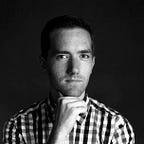Unmasking Bias Forensic Architecture’s Al hifa Hospital Reporting
Al-Haq, Forensic Architecture, and Media Accountability in the Israeli-Palestinian Conflict
In the convoluted arena of the Israeli-Palestinian conflict, truth often becomes the first casualty. The involvement of NGOs like Al-Haq and Forensic Architecture in shaping narratives raises serious concerns about bias in conflict reporting. Particularly alarming is the case of the alleged bombing of the Al Ahli hospital in Gaza, an incident investigated by Forensic Architecture in partnership with Al-Haq. This collaboration and the subsequent media portrayal by the New York Times and others starkly illustrate the erosion of unbiased reporting in this highly charged conflict.
The Problematic Alliance of Al-Haq and Forensic Architecture
Al-Haq, as previously mentioned, has partnered with Forensic Architecture on an investigation into the much debated Al Ahli hospital incident. Strikingly, Forensic Architecture’s conclusions blatantly contradict findings from Israeli and independent US intelligence. It’s essential to question the integrity of an investigation commissioned by a biased entity like Al-Haq. Here’s why:
- Leadership and Affiliations: Al-Haq’s General Director, Shawan Jabarin, has been linked to the Popular Front for the Liberation of Palestine (PFLP), a designated terrorist organization. The Israeli Ministry of Defense declared Al-Haq a terrorist organization due to its affiliation with a network operating on behalf of the PFLP.
- Funding Opacity: Al-Haq’s financial information lacks transparency. Since 2009, the organization hasn’t released detailed financial data or donation amounts. They do state that they have received funds from several European countries and organizations, including the European Union, Norway, Ireland, Italy, France, Spain, Sweden, and Germany. However, they have also made clear that these are certainly not their only funding sources. This ambiguity in funding raises serious questions about the potential influence on its reporting and activities.
- Anti-Israel Advocacy: Al-Haq actively participates in anti-Israel "lawfare" and BDS (boycotts, divestments, and sanctions) campaigns. It was a key player in the 2001 Durban World Conference against Racism, which aimed to isolate and demonize Israel internationally. Al-Haq's opposition to European Union clauses against funding organizations linked to terrorism further exemplifies its one-sided political stance.
- Apartheid Rhetoric: The organization is part of a network of NGOs that promote controversial definitions of apartheid to delegitimize Israel. Al-Haq has made multiple submissions to the UN and other bodies, accusing Israel of maintaining a settler-colonial apartheid regime, often omitting evidence linking Palestinians to terrorist organizations.
- Political Advocacy and Legal Actions: Al-Haq's political advocacy includes supporting antisemitic rhetoric, denying Israel's right to exist, and labeling Zionism as racism. They have filed lawsuits and submitted politically motivated reports to international bodies. Their attempts to sabotage the Israeli court system by overwhelming it with petitions demonstrate a strategic approach to legal warfare.
- BDS Activities: Al-Haq has engaged in numerous BDS campaigns, urging for sanctions against Israel, promoting arms embargoes, and supporting the discriminatory UN database of businesses operating in Israeli territories. These actions align with its broader strategy to economically and politically isolate Israel.
Given these factors, any investigations financially supported or influenced by Al-Haq should be approached with a high degree of skepticism. The combination of political bias, lack of funding transparency, and affiliation with a designated terrorist organization casts doubt on the objectivity and reliability of findings and reports in anyway connected to their organization.
Media Complicity in Skewing the Narrative
The role of prominent media outlets like the New York Times in this saga is equally troubling. By presenting Forensic Architecture’s findings as independent analyses without disclosing the underlying biases and financial entanglements with Al-Haq, these media entities are not just failing their audiences but are also blatantly violating the Society of Professional Journalism’s Code of Ethics which states that reporters should, “Identify sources clearly. The public is entitled to as much information as possible to judge the reliability and motivations of sources.”
This lack of transparency and accountability in reporting is not only unethical but also contributes to the distortion of facts on the ground.
Conclusion
The collaboration between Al-Haq and Forensic Architecture, and the subsequent uncritical media coverage of their collaborative work is a stark reminder of the challenges in obtaining unbiased information in conflict zones. It underscores the necessity for rigorous scrutiny of NGO reports and media stories, especially when they appear to serve a predetermined narrative. As consumers of news, we must demand higher standards of transparency and impartiality, holding these organizations accountable to the truth.
Based on the well-documented and extraordinarily numerous issues with Al-Haq, the organization’s actions and connections raise significant concerns regarding its credibility and neutrality.
Given these factors, any war-time investigations affiliated with Al-Haq should be approached with a high degree of skepticism. The combination of political bias, lack of funding transparency, and affiliation with a designated terrorist organization should cast profound doubt on the objectivity and reliability of any reported findings with Al-Haq’s name attached to it.
